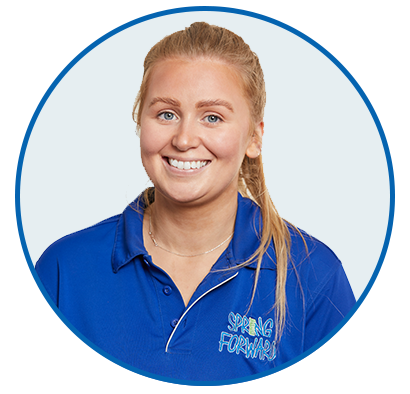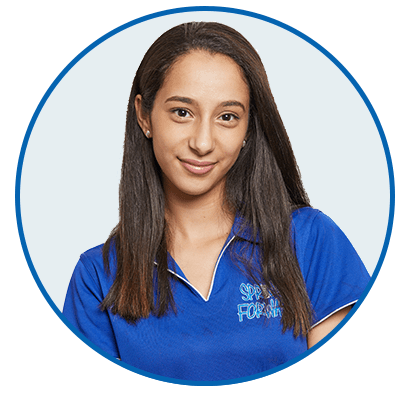Working with a Speech and Language Pathologist can increase a child’s potential for independence and positively impacts their quality of life supporting them to develop and maintain relationships, access learning opportunities, and reach their full potential.
Communication is a vital part of a child’s development and adult daily life. Communication begins with relationships. It is through back-and-forth social interactions that we all learn to communicate in a meaningful manner. When this isn’t happening, Speech Pathologists can work with children, families, teachers and other professionals to help figure out tools and techniques to form the foundational skills for communication.
Assessment looks at children’s skills in their use of language, understanding of language, speech sound production, voice quality, fluency, attention, play skills, social communication, and non-verbal communication. A holistic assessment provides guidance to clinicians to create specific strategies and programmes to help your child to develop areas where they require additional support. Sometimes the programmes and strategies are for the adults to change their communication skills too! The goal is to ensure that children are able to engage in and function effectively in their community, with their family and friends, and at school or in the workplace.
Psycholinguistic Approach
Investigates the root cause of a child’s speech, language, or literacy difficulty by accounting for the organisation of sounds and words within the child’s language-producing system (e.g., is the word/speech sound stored correctly? Is the child hearing the difference between 2 speech sounds?) The model utilises the child’s strengths as a basis for therapy.
You can find more information regarding this approach on Integrated Treatment Services.
Cycles Approach
Mirrors natural speech development in young children where easier words and sounds are typically mastered first. Error patterns occur when a child is first developing their speech sounds. These patterns are typical until certain ages (e.g. substituting the ‘r’ sound to ‘w’ sound is typical only until the age of 5-6yrs). This approach is practiced when a child presents with multiple speech error patterns, targeting 1 error for a short amount of time and then cycling through the next (e.g. in 6 week blocks). The cycle continues until all errors are eliminated.
You can find more information regarding this approach on Otsimo.
Total Communication Approach
Children with communication difficulties can struggle to understand and use spoken language, and need support to communicate basic needs, wants and desires. Total communication makes use of the skills your child does have. It involves not only oral language to build communication skills, but introduces gestures, sign language, and other visual communication systems.
Some parents are concerned that using sign language or pictures and letter boards may impede a child’s oral communication skills (talking). The research actually supports that teaching speech and other modalities of communication together will increase the likelihood that the child will speak. This is because talking or using sign language activates the same area of the brain responsible for communication. There is no evidence to support that using other methods of communication, such as sign language, will discourage the use of speech.
You can find more information regarding this approach on Hands & Voices.
Attention Autism
The infamous bucket! Attention Autism is a programme designed by UK based Speech and Language Therapist, Gina Davies to support attention skills as a foundation to communication. The bucket supports the development of natural and spontaneous communication through the use of visually based and highly motivating activities. Gina’s primary objective is that the sessions are fun and “offer an irresistible invitation to learn”!
There are four distinct phases to the programme:
– Stage 1 – The Bucket Stage
– Stage 2 – The Attention Builder
– Stage 3 – Turn Taking and Re-engaging
– Stage 4 – Shifting & Re-engaging Attention
You can find more information regarding this approach on Centre for Autism.
Colourful Semantics
An approach developed by Alison Bryan, Speech and Language Therapist; Colourful Semantics helps to make language visual! Colourful Semantics teaches children about the different parts of a sentence by giving each one a colour (or sometimes and a shape) associated with a question prompt. There are a range of benefits to using this approach, including but not limited to:
- Encouraging wider vocabulary.
- Making sentences longer.
- Supports understanding of language and language structure.
- Helps children to answer questions or generate responses to questions.
- Developing use of nouns, verbs, prepositions and adjectives.
- Improves story telling skills.
- Colours are fantastic visual aids which are useful when encouraging children to make connections.
- It is also easy to integrate colours into learning across the curriculum.
- Can be transferred to written sentences and written language comprehension.
- Can be carried out individually or in small groups.
You can find more information regarding this approach on Twinkl.
Lego®-based Therapy Groups
Developed by Dr Daniel Le-Geoff as a social development programme for Autistic children, LEGO®-Based Therapy is a tool used to support a wide range of children’s speech, language and communication skills. Run as a 3-peer group, each member is given a specific role with responsibilities and rules they must follow in order to work together to build a LEGO® model. NB. We don’t always use LEGO®! This approach can be used with a wide variety of tasks and projects such as jewellery making, film and animation, even slime!
You can find more information regarding this approach on Therapy Focus.
Parent-Child Interaction (PCI)
It seems obvious, but no-one knows your child better than you! PCI therapy coaches you to be your child’s primary communication teacher. The Speech Pathologist is there to teach you the skills and strategies you will need to optimise the time you spend with your child to improve communication. Parents play a critical role in their child’s language development. Therefore, advising parents of a child with language difficulties on how to facilitate their child’s language might benefit the child.
You can find more information regarding this approach on Mable Therapy.
Hanen Approach
A family centred approach that looks at language development from a social interaction’s perspective. The approach is founded on parents being actively involved in intervention and that communication is elicited in natural environments whilst interacting with others, as that provides the best learning opportunity for a child.
You can find more information regarding this approach on Integrated Treatment Services.
We are constantly improving the services we provide as well as the client experience at hand! With this in mind, we can give you an overview of what you can expect when working with Speech Pathology at Spring Forward.
+ Read more
I HAVE A RECENT SPEECH ASSESSMENT REPORT!
Is it dated in the last 12 months? If yes, we can start services! BOOK YOUR FREE INTAKE CONSULT!
Once you have completed our phone intake and online processes, an Speech Pathologist will evaluate your needs.
The following might occur:
- Your child’s needs are deemed suitable for a therapy assistant. We will call, book in a one-off appointment and a parent consult with a Speech Pathologist. This enables us to answer your questions, set goals and establish a plan. A plan is written, and an appointment with a trained therapy assistant is booked in.
- We place you on our on-going appointments waitlist. We log all your information, and we will call you once a suitable time opens up with one of our Speech Pathologists or Therapy Assistants.
I NEED AN ASSESSMENT
Firstly, we will need a little more information about you and your child. You will then be provided links to online intake forms and documents we need signed before commencing services. All information is kept confidential! The faster you return the paperwork, the higher on the list you will be placed!
Once a spot is available, we will contact you and book in a time. A non-refundable deposit is required at this time, and we will talk you through payment options further. Once booked, just turn up about 10mins before your session time to settle in and get ready.
About My Child’s Assessment
At Spring Forward Family Centre, we offer comprehensive Speech and Language Pathology Assessments that are targeted towards investigating your child’s current levels.
Assessment will be decided upon based on your child’s needs. Assessment may explore the following areas:
- Attention and listening
- Play
- Social and pragmatic skills
- Understanding (receptive language)
- Use of language (expressive language)
- Speech sounds and intelligibility
- Articulation (formation and production of sounds)
- Fluency
- Voice quality
I AM ONLY A LITTLE CONCERNED AND DON’T THINK I NEED AN ENTIRE ASSESSMENT
If this is the case, perhaps one of our fun and skill targeted groups or programs are exactly what you need.
REVIEW OUR CATALOGUE OF PROGRAMS
Our trained therapy assistants who facilitate these groups are either trained in early childhood development or studying to be an allied health professional. They can screen and raise any concerns with our treating Speech Pathology team. If concerns exist, then we can advise you on the next best steps!
MY CHILD IS ASSESSED, WHAT’S NEXT?
Once assessed, we will:
- Complete your report, and send you a copy
- Book in a parent consult
This enables us to answer your questions, discuss the results, set goals and make plans for your child. - Book in sessions!
Your Speech Pathologist can discuss these options with you and recommend the most appropriate therapy format based on your child’s goals and needs.
Our therapy options include, but are not limited to:
- 1:1 sessions with a Speech Pathologist
- Small group sessions
- 1:1 sessions with a Therapy Assistant
- Joint sessions with OT or counselling
- Therapy Intensives
- Home Programs
- Parent Education, Training, and consultation appointments
STILL HAVE QUESTIONS? CALL TODAY!
Group Programs are a fantastic way to work on a specific set of skills in a social setting with peers of a similar age and skill level.
Groups are allocated based on need.
Meet Your Speech Pathologists
Financial Assistance Available







